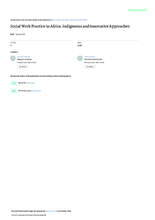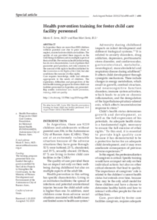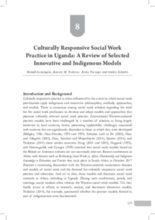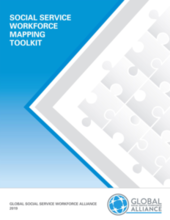Displaying 221 - 230 of 505
This book, based on empirical research, presents a selection of indigenous and innovative models and approaches of problem solving that will inspire social work practice and education.
The Routledge Handbook of Critical Social Work brings together the world’s leading scholars in the field to provide a cutting-edge overview of classic and current research and future trends in the subject.
This study explores the social work role with children in long-term care, focusing on how relationships between children and social workers can support wellbeing.
This chapter from the book Modern Day Slavery and Orphanage Tourism highlights promising practice which aims to prevent and reduce the institutionalization of children at two levels: (1) systems and social work strengthening, and (2) family strengthening and gatekeeping.
This field guide, produced by Apolitical in partnership with Hope and Homes for Children, is designed to help public servants understand the issue of children in care. It covers the following learning objectives: (1) Understand why experts say institutional care is harmful to children, (2) Learn about deinstitutionalisation and new approaches to replace institutions and prevent family separation, and (3) Learn about interventions that have improved outcomes for kids who do experience care.
In this article, the experience, difficulties and perspectives of the first health training program for foster child care facilities personnel in Argentina are presented.
This self-review helps organizational and program leaders evaluate, learn, and report on their organization's overall health, open to any organization working with vulnerable children in international contexts.
This chapter from Social Work Practice in Africa: Indigenous and Innovative Approaches showcases examples of home-grown indigenous and innovative models of social work practice in Uganda, including local models for addressing the HIV/AIDS orphan crisis in Rakai district.
The purpose of this toolkit is to guide participatory, national level analyses of the social service workforce.
The purpose of this study is to explore child welfare workers' perspectives on ethnic matching in child welfare service delivery.




